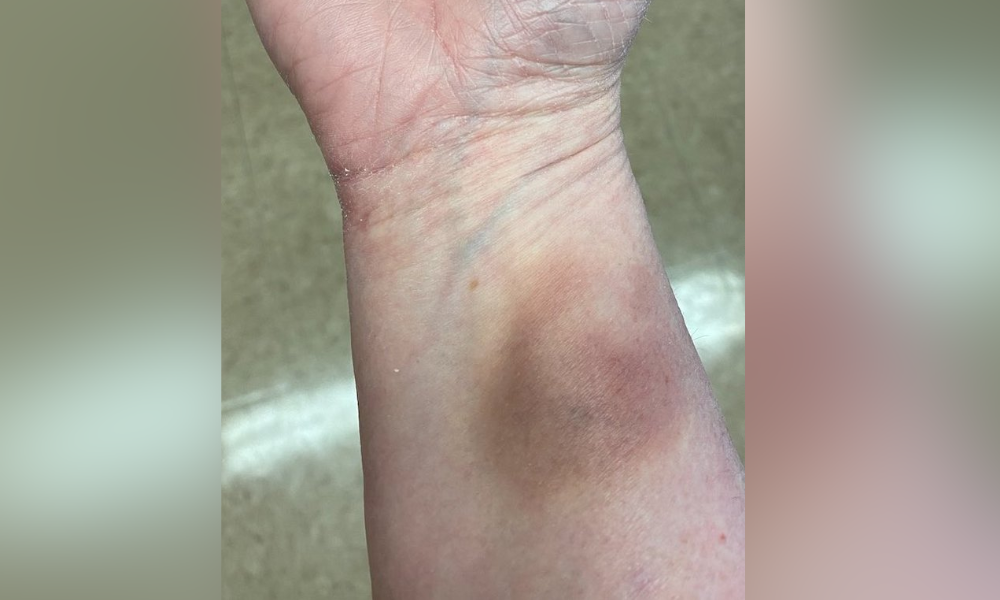'Photos like this are things that I receive more often than I would like' says union president

When a Nova Scotia teacher shared an image of her bitten and badly bruised forearm, Ryan Lutes was frustrated, angry, and disappointed. But he wasn’t at all surprised.
"Unfortunately, it wasn't shocking to me,” says the president of the Nova Scotia Teachers Union. "Photos like this are things that I receive more often than I would like."
Nova Scotia's education sector is grappling with a concerning rise in school violence “Teachers just go to work thinking that they're going to be hit, kicked, pushed, concussed…and that's really hard, not only on their physical health, but on their mental health," says Lutes.
Statistics indicate that approximately 55% of teachers in Nova Scotia have experienced violence or threats in the workplace. "What we do know is that the latest recorded incidents of violence in general in our schools, that wouldn't be just to teachers, but it was at an all-time high," says Lutes.
The issue of violence in schools is not unique to Nova Scotia, and remains a pressing concern nationwide, and Lutes believes it is a growing problem because students are not receiving the resources they need. "I think it's a failure of many governments to not put in the appropriate resources when student needs have increased," says Lutes, suggesting successive governments across Canada have failed to address this issue.
“This goes across all political stripes," he explains, “they have dropped the ball on violence in schools, because it is a complicated issue."
The failure to protect teachers is causing many to reconsider their career choices. The NTSU conducted a poll and found 84 percent of its members have thought about leaving the profession, with 42 percent of them saying they considered quitting specifically due to school violence. Compounding the problem is a shortage of teachers in the province.
In response to these challenges, the NSTU has been actively advocating for concrete changes and increased government support to ensure the safety and well-being of teachers and students alike. Lutes stresses the importance of implementing comprehensive solutions that address the multifaceted nature of the issue. "This is a pervasive system-wide problem that requires pervasive system-wide government supports," he insists.
Despite the gravity of the situation, Lutes expressed optimism that collaborative efforts between the government, educators, and stakeholders can pave the way for meaningful change.
As Nova Scotia grapples with the scourge of violence in its schools, the NSTU remains steadfast in its commitment to advocating for the rights and safety of educators. "The union calls for a collective response to address this pressing issue and ensure a safe and conducive learning environment for all," says Lutes.
The rising tide of violence against teachers serves as a stark reminder of the urgent need for systemic reform and increased support for the education sector, not just in Nova Scotia, but in provinces across Canada.





